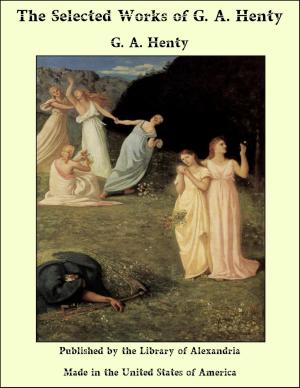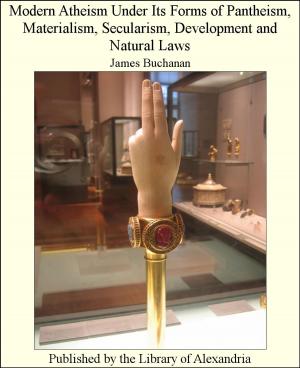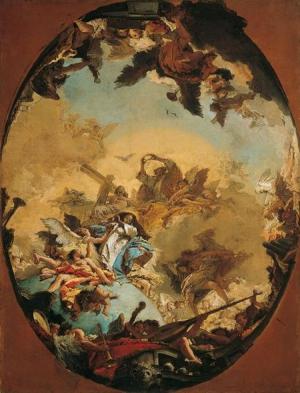The Mystery of the Lost Dauphin Louis XVII
Nonfiction, Religion & Spirituality, New Age, History, Fiction & Literature| Author: | condesa de Emilia Pardo Bazán | ISBN: | 9781465602114 |
| Publisher: | Library of Alexandria | Publication: | March 8, 2015 |
| Imprint: | Language: | English |
| Author: | condesa de Emilia Pardo Bazán |
| ISBN: | 9781465602114 |
| Publisher: | Library of Alexandria |
| Publication: | March 8, 2015 |
| Imprint: | |
| Language: | English |
While Provençal literature blossomed in chivalric splendor along the northern shore of the Mediterranean and rare pastoral music in madrigals and roundelays rang through France and Italy, there sounded from the sea-girt province of Galicia wonderful songs which rivalled the sweetest strains of the troubadours, making kings to weep and warriors to smile, thrilling, by their wit and pathos and lyrical beauty, the brilliant courts of Castile and Leon. It is an ethnographical phenomenon that, in Great Britain, France and Spain, the Celt has been pushed to the northwest. Galicia corresponds in position to Brittany and her people are characterized by the powerful imagination, infinite delicacy, concentration of feeling and devotion to nature which are the salient attributes of Gaelic and Cymric genius. The Modern Literary Renaissance of Galicia, a superb outburst of Gallegan exuberance, has a noble and eloquent exponent in Emilia Pardo Bazán, gifted child of this poetic soil. Senora Pardo Bazán has been called the creator and protagonist of Spanish Realism. It has been claimed that she bears to Spain such a relation as Turgénieff to Russia and Zola to France. She herself says somewhere that she is skeptical regarding the existence of Realistic, Idealistic and Romantic writers, averring, in her trenchant style, that authors constitute but two classes, good and poor. "Certain critics would affirm," she remarks, "that, as simple as the cleaving in twain of an orange is the operation of separating writers into Realistic and Idealistic camps." One biographer claims that our author sacrifices sex to art and that the result warrants the sacrifice. I would insist that 'tis a lady's hand wielding the mailed gauntlet and that reading Pardo Bazán helps one to understand why Great Brahm is described as partaking of the feminine principle.
While Provençal literature blossomed in chivalric splendor along the northern shore of the Mediterranean and rare pastoral music in madrigals and roundelays rang through France and Italy, there sounded from the sea-girt province of Galicia wonderful songs which rivalled the sweetest strains of the troubadours, making kings to weep and warriors to smile, thrilling, by their wit and pathos and lyrical beauty, the brilliant courts of Castile and Leon. It is an ethnographical phenomenon that, in Great Britain, France and Spain, the Celt has been pushed to the northwest. Galicia corresponds in position to Brittany and her people are characterized by the powerful imagination, infinite delicacy, concentration of feeling and devotion to nature which are the salient attributes of Gaelic and Cymric genius. The Modern Literary Renaissance of Galicia, a superb outburst of Gallegan exuberance, has a noble and eloquent exponent in Emilia Pardo Bazán, gifted child of this poetic soil. Senora Pardo Bazán has been called the creator and protagonist of Spanish Realism. It has been claimed that she bears to Spain such a relation as Turgénieff to Russia and Zola to France. She herself says somewhere that she is skeptical regarding the existence of Realistic, Idealistic and Romantic writers, averring, in her trenchant style, that authors constitute but two classes, good and poor. "Certain critics would affirm," she remarks, "that, as simple as the cleaving in twain of an orange is the operation of separating writers into Realistic and Idealistic camps." One biographer claims that our author sacrifices sex to art and that the result warrants the sacrifice. I would insist that 'tis a lady's hand wielding the mailed gauntlet and that reading Pardo Bazán helps one to understand why Great Brahm is described as partaking of the feminine principle.















